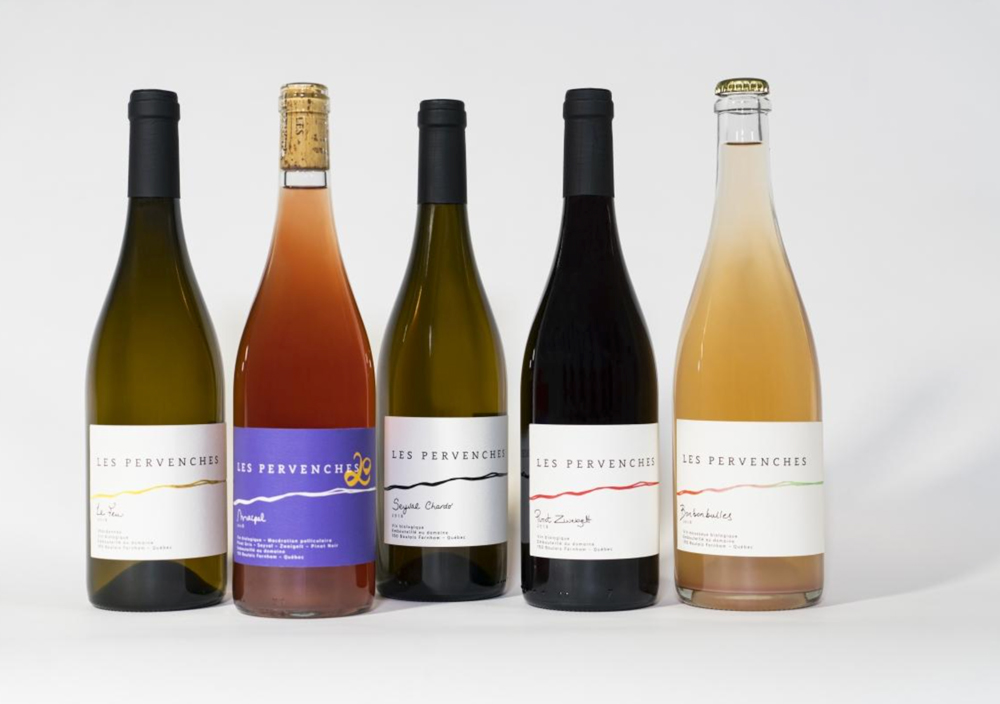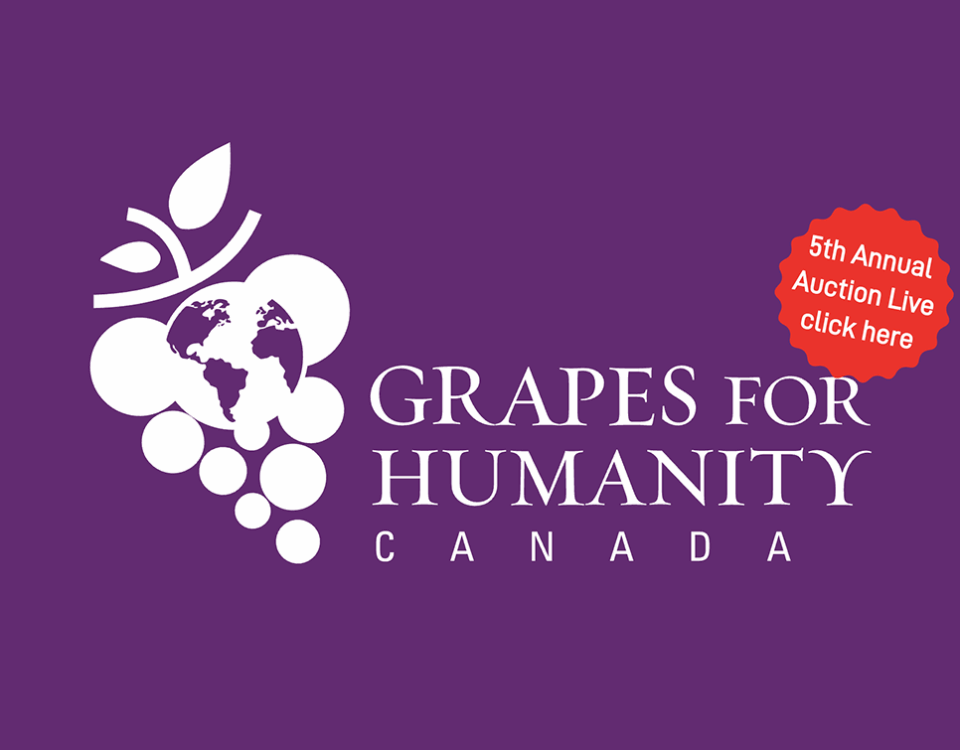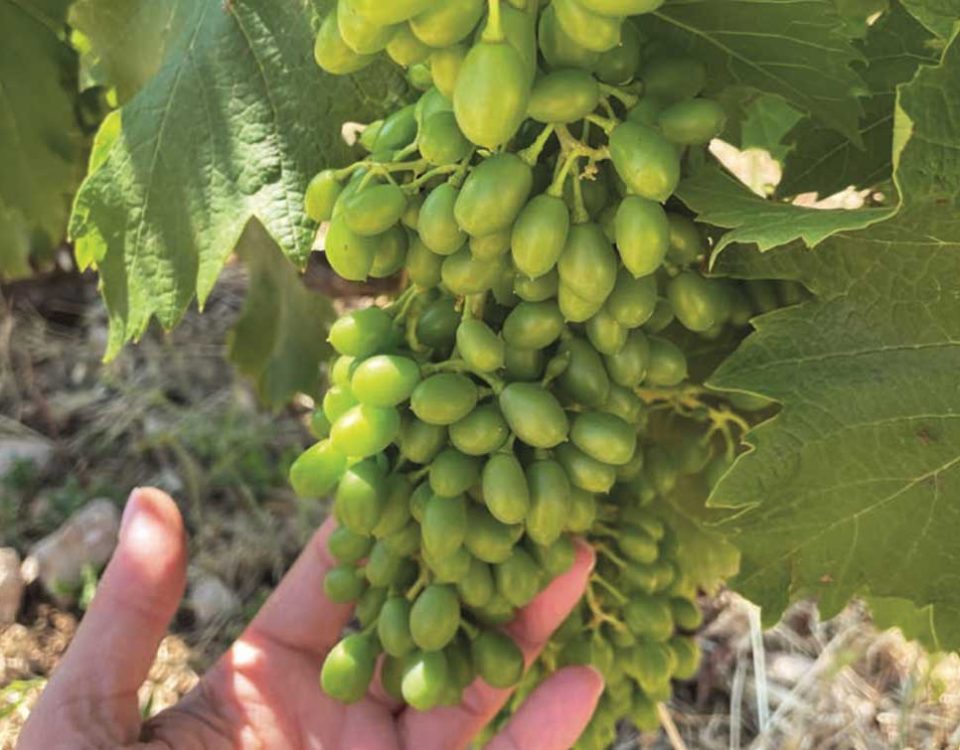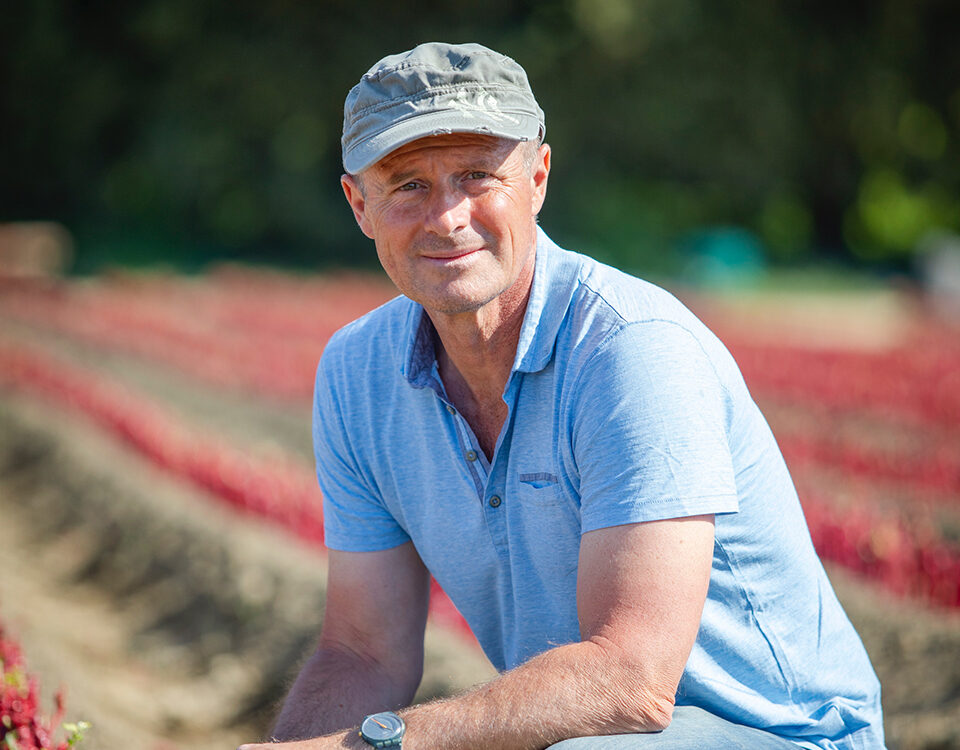Climate Change, good news for Quebec?
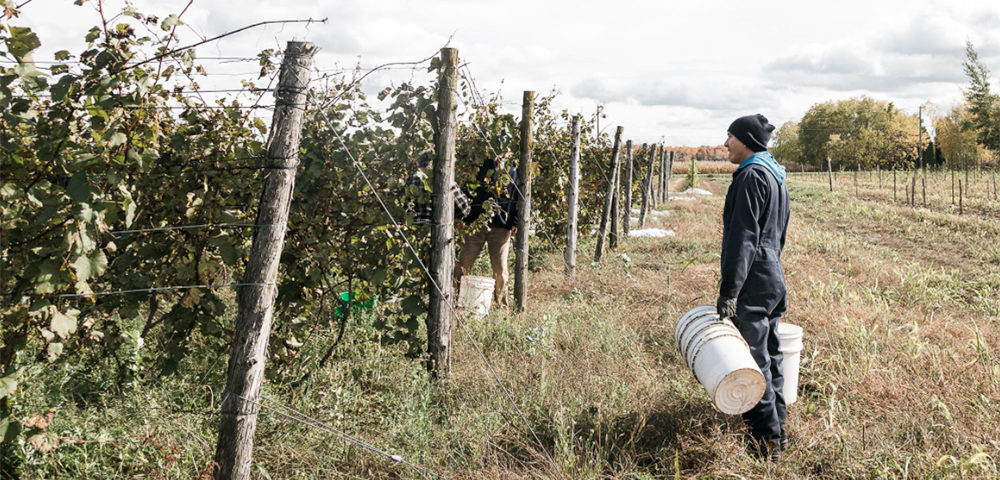
Every time I travel to a wine region, I put a bottle of Canadian wine in my luggage. The best wines rarely get exported and I share with pride the jewels made by local producers. When I share a bottle made in Québec, I always get the same reaction: isn’t too cold to grow grapes?
Indeed, it is challenging to grow grapes in Quebec. It takes a lot of passion, determination, and courage. The growing seasons are shorts, spring and fall frosts are a constant threat and the harsh winters make it necessary to put geotextile over the vines to protect them. Many believe that climate change might make it easier for those courageous producers in the future. To find out, I asked Michael Marler, one of the most regarded producers in the province.
The story
Michael Marler owns Les Pervenches with his wife Véronique Hupin, a property with just over 4 ha of vines located in Farham, Québec. Their venture started in 1998 and their success is the result of constant questioning, trials and making courageous decisions. They hold the organic and biodynamic certifications, not an easy task considering the harsh climate of Quebec. Furthermore, a visit to the now passed away and highly regarded Marcel Lapierre in Beaujolais inspired them many years ago to make natural wine. They have succeeded. While the recent natural wine movement has led to many funky wines, Lapierre always made pure wine, without the noise of multiple wine faults. The wines from Les Pervenches are clean and pure. It takes a lot of knowledge to do little.
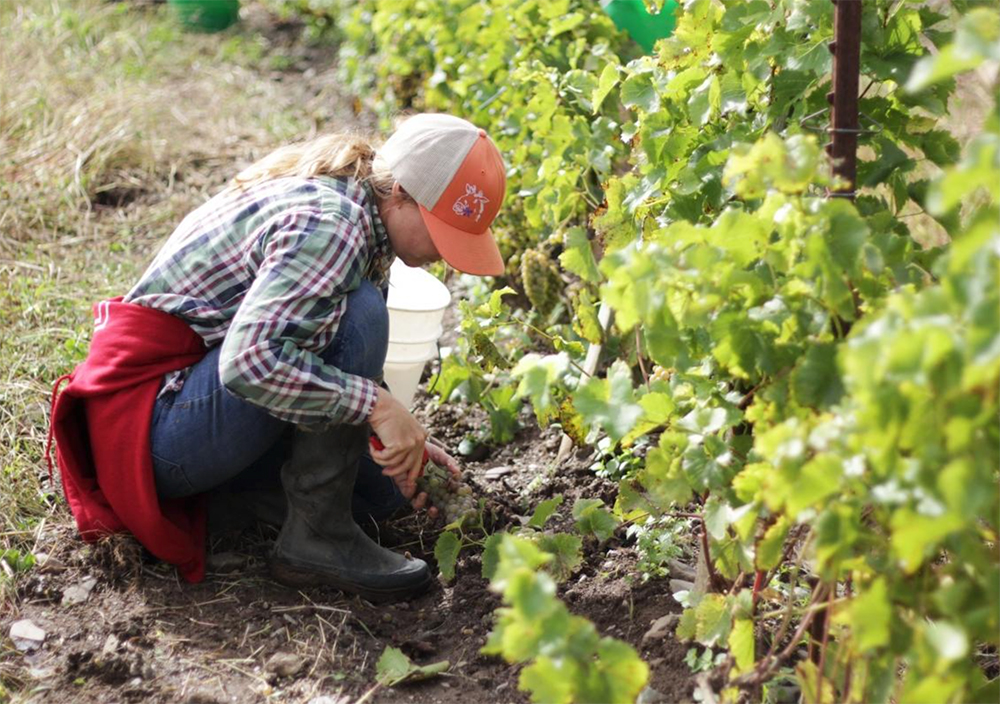
Climate Change and Québec
Naturally, people assume that cool regions will automatically benefit from climate change. But sadly, it is not as simple as this. Like in the rest of the world, extreme temperatures events are becoming regular occurrence and it brings its load of challenges. “The biggest change is the arrival of frost in September” says Marler. “Between 2000 and 2012, it happened a few times but now, it’s pretty much guaranteed. Temperature can drop below 5–6-degree Celsius. Its very important to have protection. Our wind machine has saved us on multiple occasions” he adds.
The other major challenge is the increase pressure of mildew in general and the arrival of a new species: Plasmapora viticola aestivalis. It arrived in the region about five years ago. “It can spread at the end of the season and in the middle of September. We have a lot to learn on this new strain, its behaviour and how to control it” says Marler. He explains that having the Scott Henry Trellis System has helped. He also sprays with copper along with essentials oils made from citrus and oregano. But above all, he explains that the vines need to be strong and healthy to combat. Fermented preparations made of nettle and comfrey are applied to give a boost to the plant. They are also doing a new trial based on a technique recommended from an Italian agronomist, Reggero Mazzili. The idea is that cover crops can prevent rainfall from splashing back and therefore, prevent the spores from spreading as they stay in the cover crops. They are exploring with different types of cover crops including autumn rye, winter wheat which are planted in the spring.
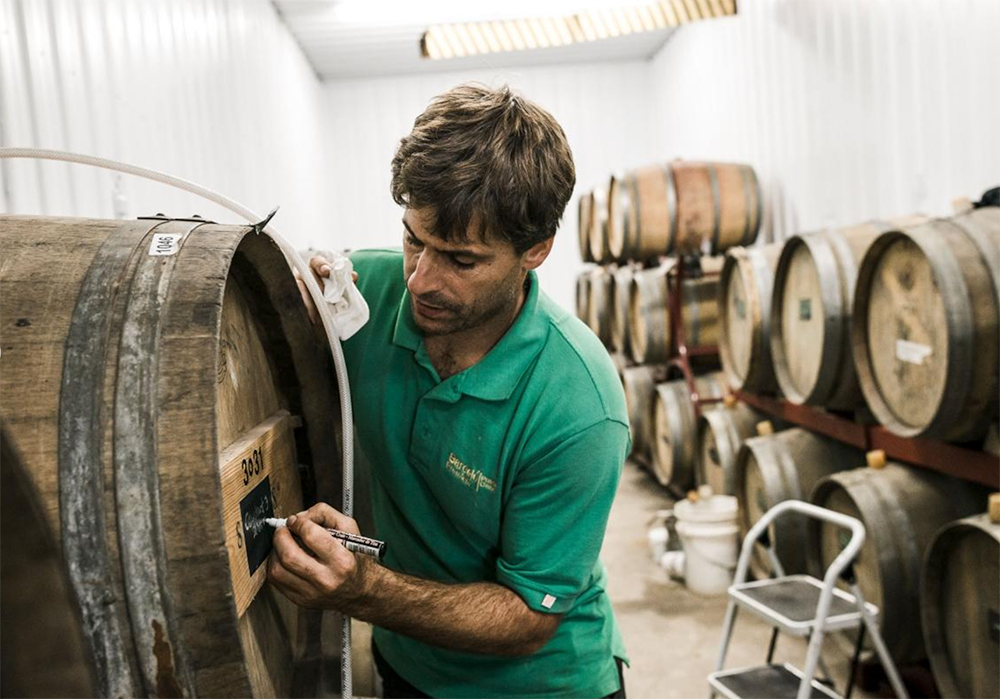
On vintage consistency, Marlers explains that they vary from year to year and there is no consistency. For example, while 2019 was one of the coldest years he has seen in the 20 years, 2020 was outstanding with grapes reaching an alcohol potential of 13.8%. However, one thing that could be seen as positive is the earlier budding which extends the growing season. “Budding now occurs between the 20th and 30th of April. It can be problematic with spring frost but with our wind machine working effectively, we (so far) haven’t had any frost damage”.
Growing grapes in Québec is an arduous task and climate change is likely to continue to bring its load of challenges. But growers are resilient and passionate. The future can only be brighter if together, we continue to share solutions to adapt. Today, as we celebrate Saint-Jean Baptiste, la fête nationale du Québec. I raise a glass to Michael, Véronique and to all of the other Quebec producers who make us proud. Bonne fête nationale!
